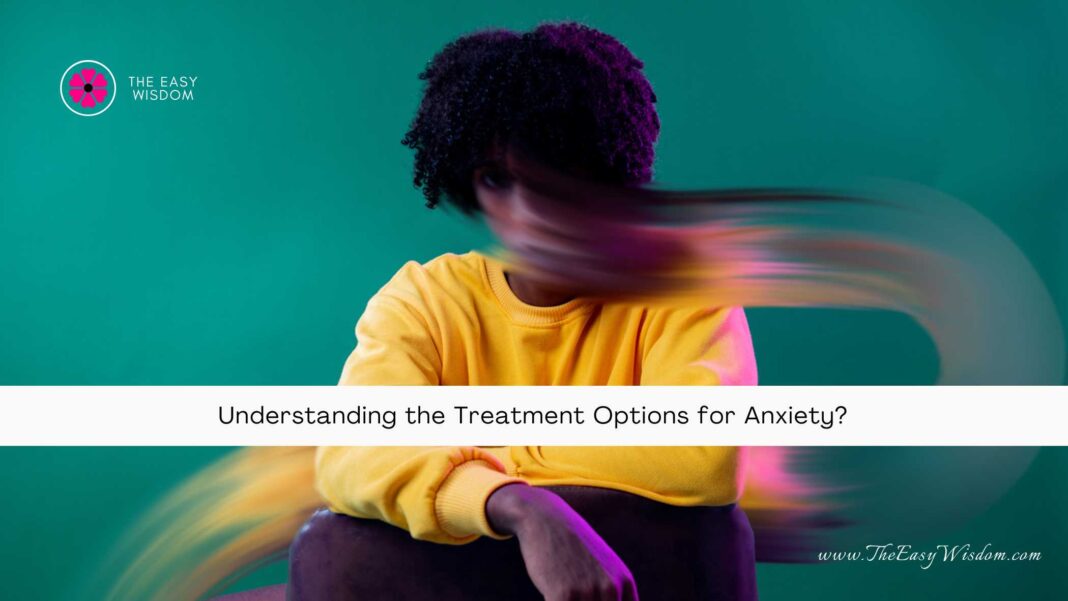If you’re struggling with your mental health, you need to find a treatment that works for your anxiety to regain control over your life, prevent the progression of mental health conditions, develop coping skills, and promote well-being. Seeking guidance for anxiety is not a sign of weakness but rather a courageous step towards a happier and healthier life. If you need advice, keep reading to unlock thorough knowledge about anxiety.
Understanding what anxiety really is
Anxiety is a natural response of the human body to stress—an emotion characterized by feelings of tension, worried thoughts, and physical changes like an increased heart rate. Everyone experiences anxiety at various points in their lives. Anxiety becomes a disorder when these feelings become chronic and severe and interfere with daily life. The persistent worry and fear can be overwhelming and, in some cases, debilitating. It’s not just nervousness; it can manifest in physical symptoms that disrupt normal functioning.
Working with an anxiety therapist, one can develop coping mechanisms to manage and reduce these feelings of anxiety. They can advise on identifying triggers and confronting the inherent fear in a safe and comfortable environment. Therapy can be instrumental in treating anxiety by allowing individuals to gain insight into the root causes of their anxiety, providing coping mechanisms, and offering a supportive environment. If you are struggling with anxiety, working with a therapist can provide the guidance and tools necessary to manage and overcome anxiety symptoms.
Exploring the major causes and risk factors of anxiety
Several factors contribute to anxiety disorders. Genetics play a role—if a close family member has an anxiety disorder, you are at a higher risk of developing one. Chronic medical conditions like heart disease and diabetes or experiencing a traumatic event can also trigger anxiety disorders. Personality can influence the propensity for anxiety disorders. Certain personality types are more prone to anxiety disorders than others. Other risk factors include substance misuse, such as excessive nicotine or caffeine intake.
Prolonged and uncontrolled stress, childhood trauma, and a family history of mental health disorders can also contribute to these conditions. Know that having these risk factors does not guarantee an anxiety disorder; they merely increase the chances. By learning more about the causes and risk factors associated with anxiety disorders, one can take proactive steps toward prevention and seek appropriate support in the early stages if needed.
So, what are various treatment options for anxiety? Let’s find out!
Unfolding the treatment options for anxiety
A range of treatments exist for managing and treating anxiety disorders, with the most effective being a combination of therapeutic and medicinal interventions. Cognitive-behavioral therapy (CBT) is one prominent approach. It involves helping patients learn to identify and change thought patterns leading to anxiety. Other standard treatment options include exposure therapy, dialectical behavior therapy (DBT), and eye movement desensitization and reprocessing (EMDR). Medication can assist in managing some physical symptoms of anxiety.
Many people with anxiety disorders also benefit from joining a support group. This creates an opportunity for connection, sharing experiences, and advice from those who can relate to their struggles. Sometimes, lifestyle modifications such as regular exercise, sufficient sleep, and a healthy diet can reduce symptoms and manage the condition.
A balanced lifestyle and beyond
While formal therapy and medical interventions can provide relief for anxiety, it’s also essential to consider lifestyle changes. This includes maintaining a balanced diet, exercising regularly, ensuring adequate sleep, and limiting alcohol and caffeine intake. Stress management techniques such as yoga and meditation can also be beneficial. Taking time each day for relaxation and fun breaks the cycle of constant worry.
In addition, engaging in activities you enjoy like reading, gardening, or drawing, can also shift your focus away from your worries. Surrounding yourself with a positive, supportive network of friends and family can be an indispensable part of your recovery journey. Finally, consistent follow-ups with your mental health professional can ensure you are on the right track. They can help adjust therapies as required and identify any emerging anxieties before they escalate.
As you can see, anxiety disorders are extremely treatable, and individuals don’t have to live in constant fear and worry. Untreated anxiety can limit a person’s ability to participate fully in social activities, pursue personal goals, and maintain healthy relationships. By seeking treatment, individuals can learn coping mechanisms and develop strategies to manage their anxiety symptoms, enhancing their quality of life.
Are you aware of some more treatment options for anxiety? Please mention your thoughts and comments about treating it.




